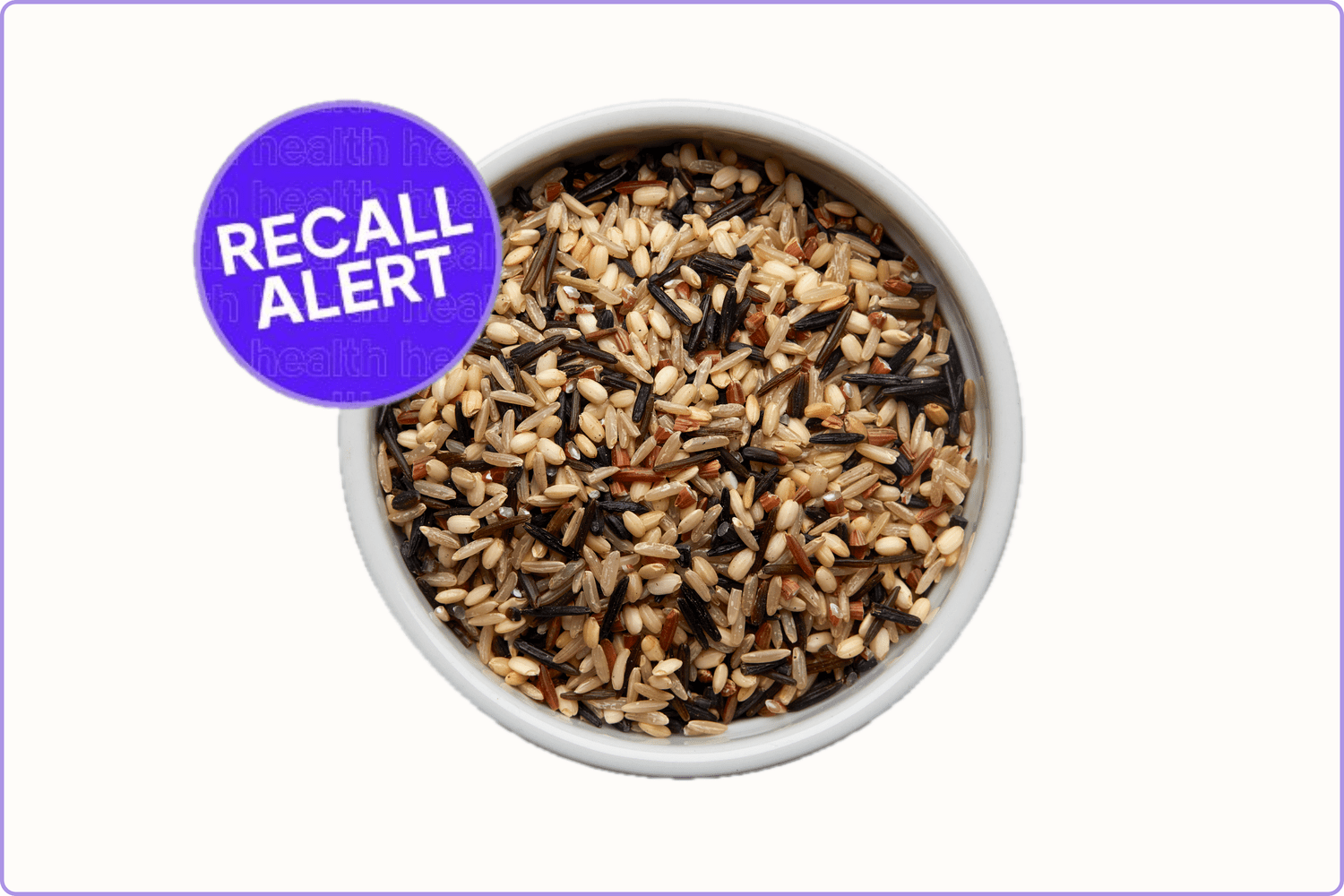FDA Recalls Thousands of Bags of Rice Due to Potential Rodent Contamination

Lundberg Family Farms has recalled one-pound pouches of its Sustainable Wild Blend Gourmet Rice after a “foreign object that appears to be of rodent origin” was detected in the product, according to a Food and Drug Administration (FDA) notice.
The company voluntarily pulled 4,600 cases—over 27,500 individual bags—of the rice from shelves as part of the recall, which was first initiated on May 10. The rice was distributed to a number of states across the U.S.—this includes California, Oregon, Wisconsin, Maine, Florida, Arizona, and New Hampshire, according to the FDA.
Though the recall isn't new, on Wednesday, the FDA updated their notice to mark the Lundberg Family Farms recall as class II. This means that consuming the possibly-contaminated product could 'cause temporary or medically reversible adverse health consequences.'
The recalled Wild Blend Gourmet Rice pouches can be identified by the following:
No other lots of the rice were impacted.
According to a recall notices posted on various grocers' websites, if you think you've purchased one of the Sustainable Wild Blend Gourmet Rice products, you should throw it out. If you still have your receipt, you can bring it to the store where you bought it for a full refund.
'Out of an abundance of caution, in May 2024, Lundberg Family Farms issued a small voluntary recall of 4,600 cases of its 1lb. Sustainable Wild Blend Rice,' a company spokesperson told Health. 'This is not a new recall and the affected product is no longer on store shelves. No illnesses have been reported from the consumption of the affected product.'
The FDA still considers this recall 'ongoing.'
In food safety, the term “foreign object” is used to refer to something that winds up in a food or product that shouldn’t be there.
In this case, the contamination 'of rodent origin' likely refers to pieces of a rat or mouse that got into the rice during the manufacturing portion of processing. However, it’s not entirely clear what type of rodent is being referenced in the recall, or how prevalent this contamination might be in the rice.
Foreign contamination in food products can and does happen. In the past year alone, the FDA issued recalls after plastic was found in soup dumplings, and metal pieces were detected in chicken nuggets.
According to the U.S. Department of Agriculture, foreign material contamination was one of the leading causes of food recalls in 2022 by unit count.
'Recalls like this are actually fairly common,' Ellen Shumaker, PhD, director of outreach for the Safe Plates program at North Carolina State University, told Health. 'Foods can become contaminated due to rodent parts, as well as other foreign material such as pieces of metal or plastic from equipment malfunctions.'
Rodent parts usually get into products after they get into facilities through cracks or holes in walls, the foundation, roof, or ventilation, Schumaker said.
'They're also attracted to high-moisture areas, storage areas where food is not properly sealed, and in general areas that are not clean and organized and free of debris [or] garbage,' she added.
If someone were to consume the recalled Sustainable Wild Blend Gourmet Rice, it's possible that they would ingest the rodent parts without realizing it, and feel fine.
However, depending on the size of the contamination, these rodent parts 'could also pose a choking hazard,' Shumaker said.
There's also a chance that the rice could cause illness. Rats and mice can carry a host of diseases, including hantavirus, salmonella, and streptobacillus moniliformis (which causes rat bite fever)—it's possible that someone could contract one of these diseases after eating the recalled rice, Thomas Russo, MD, professor and chief of infectious disease at the University at Buffalo Jacobs School of Medicine and Biomedical Sciences, told Health.
“It depends on how the food is processed,” Russo said. “Some of these may be inactivated, depending on the processing and sterilization that may occur.”
If you did purchase and consume the possibly-contaminated rice, the 'likely scenario' is that you'd be just fine, he said. However, it's smart to be on the lookout for fever, body aches, rashes, or other symptoms that something might not be right.
'The likelihood of getting sick is small, but if anyone feels that they ingested this and developed a response, reach out to a healthcare professional to get this sorted out,” said Russo.




